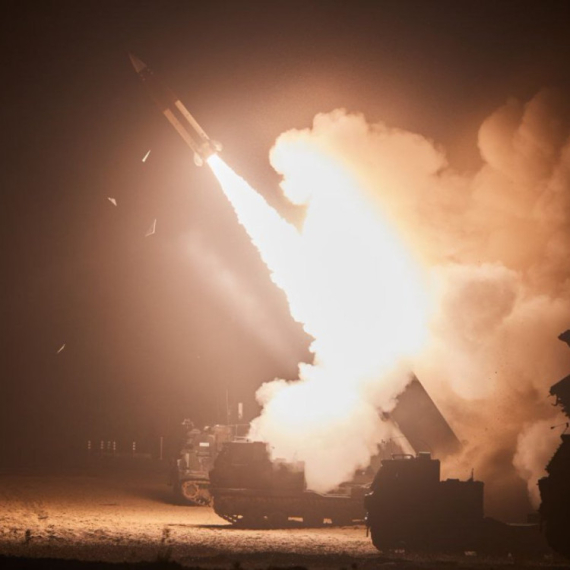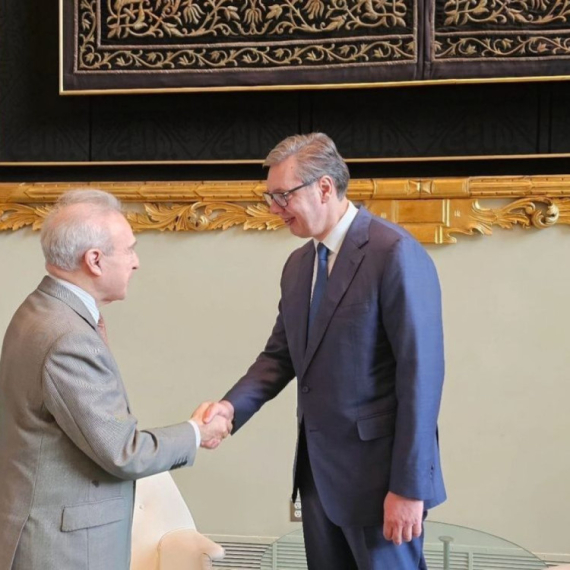"U.S. may change its approach to Balkans"
U.S. Pres. Barack Obama’s administration may take a different stance on the Balkans, but it will take time, says an expert from the Woodrow Wilson Center.
Wednesday, 11.02.2009.
13:15

U.S. Pres. Barack Obama’s administration may take a different stance on the Balkans, but it will take time, says an expert from the Woodrow Wilson Center. Martin Sletzinger, the Center’s East European Studies director, says that Obama’s Balkan policy “could take on certain nuances of Clinton’s policy, in a positive sense,” according to Voice of America. "U.S. may change its approach to Balkans" Clinton’s administration always maintained that one of their best foreign policy successes was the termination of the war and the creation of peace and stability in Bosnia-Hercegovina. “I think that Obama may want to promote that situation, particularly in view of the somewhat vague situation on the ground in that country. The U.S. may consider the possibility of taking on a more important role in order to preserve the Dayton Accords, which the U.S., in fact, made possible and supported,” said Sletzinger. “In addition to diplomacy, the U.S. may also consider the possibility of a limited military presence in order to secure regional stability and cooperation,” he added. The key issue, Kosovo’s status, will continue to be a “frozen controversial issue,” and will probably remain so for some time, Sletzinger said. Serbian President Boris Tadic has confirmed that he will not recognize Kosovo’s independence, but at the same time said he would be willing to talk, even in Pristina, about vital issues involving the Serbs in Kosovo, Sletzinger said. There is an essential difference between the situation in Kosovo and the one in Bosnia-Herzegovina, according to Sletzinger. In the latter, in spite of the air strikes, the U.S. practiced an objective policy toward all sides, he claims, as reflected in the Dayton Accords, which envisaged the existence of separate entities within the state. This was not the case with Kosovo, he said, where a different policy was practiced, resulting in, among other things, the current uncertainty in that region. Barack Obama (FoNet, archive)
"U.S. may change its approach to Balkans"
Clinton’s administration always maintained that one of their best foreign policy successes was the termination of the war and the creation of peace and stability in Bosnia-Hercegovina.“I think that Obama may want to promote that situation, particularly in view of the somewhat vague situation on the ground in that country. The U.S. may consider the possibility of taking on a more important role in order to preserve the Dayton Accords, which the U.S., in fact, made possible and supported,” said Sletzinger.
“In addition to diplomacy, the U.S. may also consider the possibility of a limited military presence in order to secure regional stability and cooperation,” he added.
The key issue, Kosovo’s status, will continue to be a “frozen controversial issue,” and will probably remain so for some time, Sletzinger said.
Serbian President Boris Tadić has confirmed that he will not recognize Kosovo’s independence, but at the same time said he would be willing to talk, even in Priština, about vital issues involving the Serbs in Kosovo, Sletzinger said.
There is an essential difference between the situation in Kosovo and the one in Bosnia-Herzegovina, according to Sletzinger. In the latter, in spite of the air strikes, the U.S. practiced an objective policy toward all sides, he claims, as reflected in the Dayton Accords, which envisaged the existence of separate entities within the state. This was not the case with Kosovo, he said, where a different policy was practiced, resulting in, among other things, the current uncertainty in that region.


























































Komentari 15
Pogledaj komentare